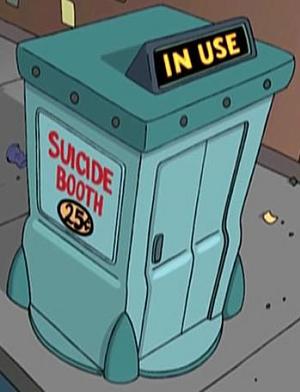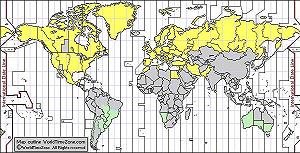Unnecessary Complications: The Pros and Cons of Daylight Saving Time
 | | Does it really need to be this complicated? |
This morning, millions of Americans got up feeling more fatigued than usual, cursed their alarm clocks, and drove groggily to work as though suffering from jetlag. Their circadian rhythms were thrown off in a significant way, and in some cases, they won't recover from this for weeks. A study released last year predicts that this week will see a marked increase in male suicide rates, and according to an article in the New England Journal of Medicine and a few other case studies, traffic accidents increased by as much as ten percent this morning due to this epidemic of exhaustion. Most of these people don't know why they have to suffer this every single year, why they are forced to fiddle with their clocks--both internal and external--twice a year.
The practice of Daylight Saving Time is indeed a strange world-wide phenomenon, and there are several strange theories out there as to why it exists. The two most cited explanations, though, involve energy conservation and traffic fatalities. Oddly, research suggests that both reasonings are flawed.
In the U.S., shortly after Daylight Saving Time was standardized by the federal government in the Uniform Time Act, President Nixon instituted an emergency fifteen month period of daylight savings in response to the Arab oil embargo. It was widely believed that Daylight Saving Time would save energy, and thus reduce our oil consumption. In fact, it didn't work then, and it doesn't work now.
 | | Aw, your kid is so proud he made a sundial! Bet you didn't tell him it only works for half the year. |
In 2000, parts of Australia experimented with Daylight Saving Time, but overall energy consumption was unchanged. Studies in 2007 in Japan and California found that there was no significant change in energy consumption as a result of Daylight Saving Time, though early morning energy loads increased while early evening loads decreased. A 2008 study in Indiana concluded that Daylight Saving Time, once it was implemented in 2006, saw an overall increase of energy consumption, mostly due to the extra afternoon cooling needs. And there are plenty of more examples, all of which give similar results.
And while study after study shows that the added evening sunlight does decrease automobile fatalities, study after study also shows that automobile fatalities increase in the mornings following the spring transition. Granted, the overall result favors a decrease in fatalities, but it isn't very dramatic.
 | | Suicides increase in the weeks after people are forced to spring forward |
It also fails to take into account the very real psychological trauma that can result from Daylight Saving Time. Seasonal Affective Disorder, depression, alcoholism, night blindness, Obsessive-Compulsive Disorder, and schtizophrenia, for example, have all shown adverse effects following the spring transition. Even heart attack rates increase during the first week. Other physical health complications are very real, and some governments, most famously that of Kazakhstan, have abolished Daylight Savings Time because of them.
From a commercial standpoint, the time shift has both positive and negative complications. While storefront businesses, especially those specializing in sporting goods, see a boon because of the extra daylight hour in the summer months, other businesses, like movie theaters and book stores, see a definite loss of business for the same reason. Additionally, although some urban legens claim Daylight Saving Time exists for their benefit, farmers can be greatly harmed by the loss of a morning hour; grain harvesters are particularly vulnerable. It even adversely affects prime-time television ratings and is the main reason why most new programming is withheld over the summer. Naturally, in each of these cases (except for the farming), the argument can be made that this is simply because of the longer summer days and warmer weather and not because of Daylight Saving Time.
 | | Half the world changes its clocks half the time while half the world doesn't, but the whole world has to deal with the headache |
Computers can also be troublesome when it comes to changing the clock twice a year. While most operating systems today will make the change automatically, this presents problems when the rules change, like they did in 2007, or when a person moves into a location where Daylight Saving Time isn't practiced. Indeed, living on the border with such a place (around Arizona, for example) can get very annoying, not to mention the business disruption of schedule confusion, billing problems, records management, travel arrangements, etc.
But the main reason we should do away with this odd convention is because most working people hate the unnecessary complication and week or two of virtual jetlag. If there were a democratic vote on the matter, I'd be willing to bet that a vast majority would want to abolish the time shift, especially if the vote took place today, on the first Monday following the spring change.
Then again, it does keep you on your toes. Perhaps a little oddity here and there keeps life interesting.
-e. magill, 03/09/2009
|
|